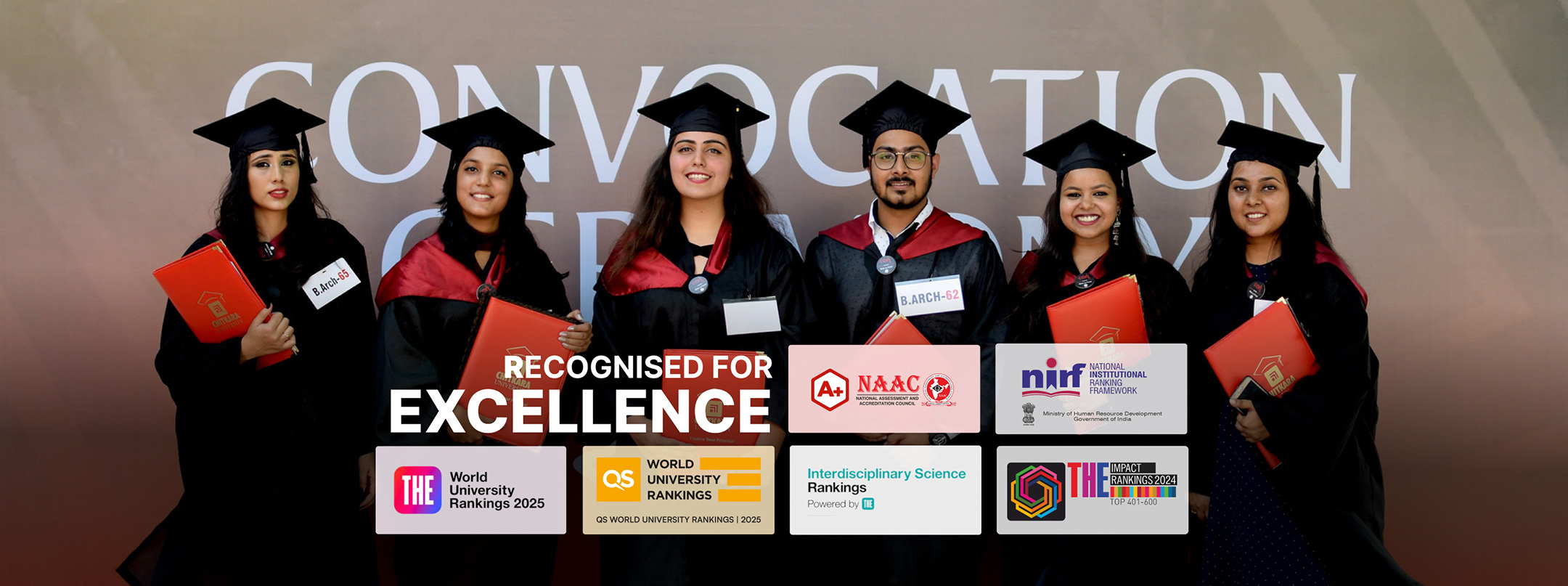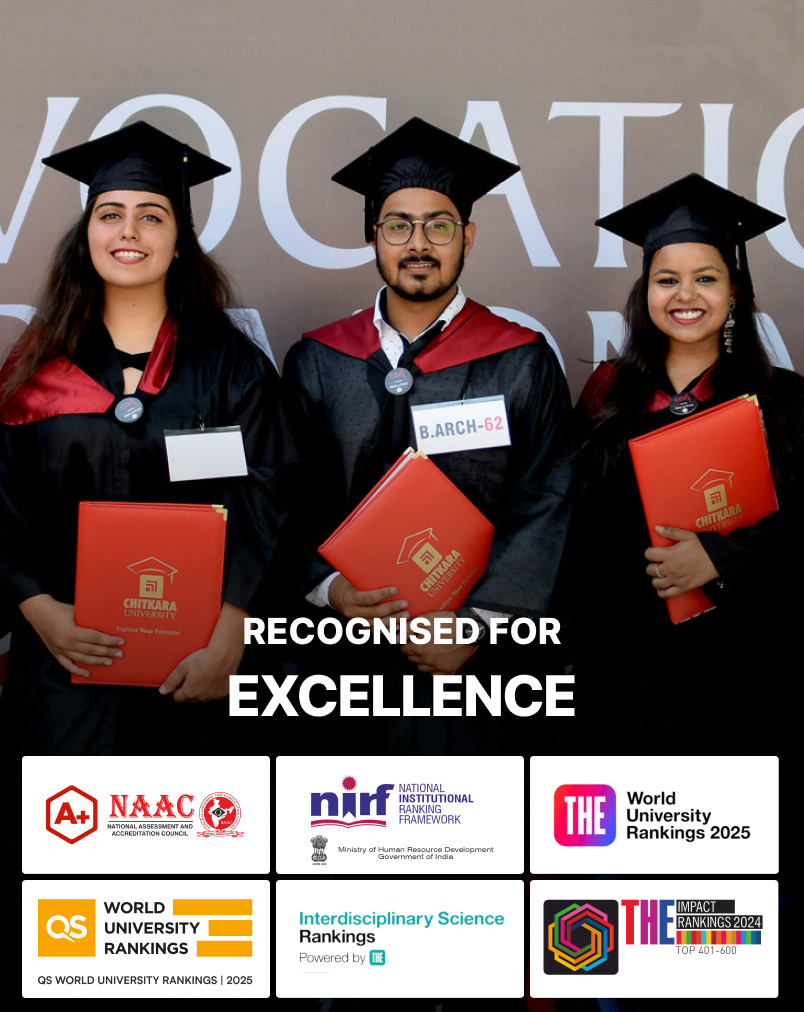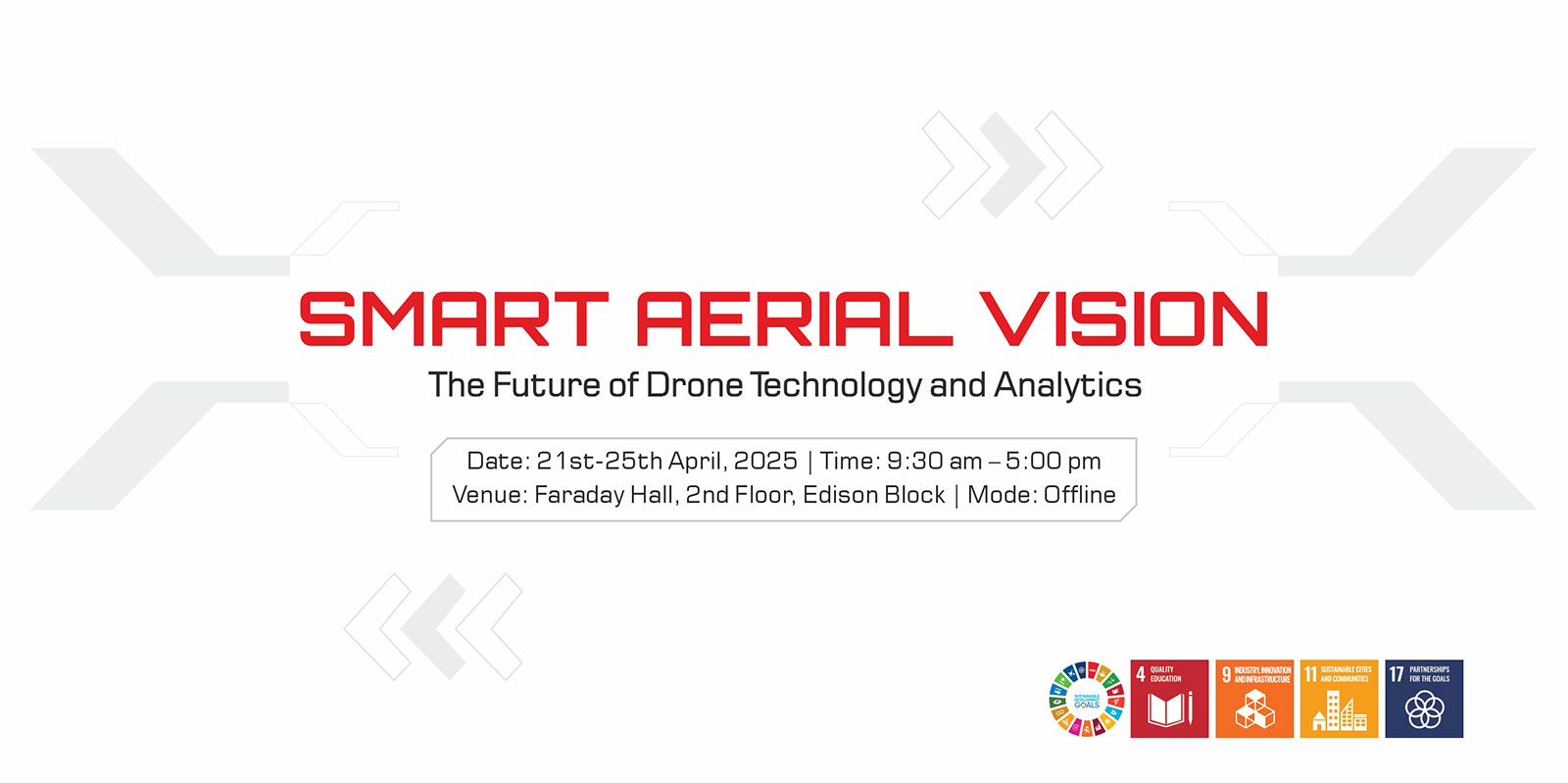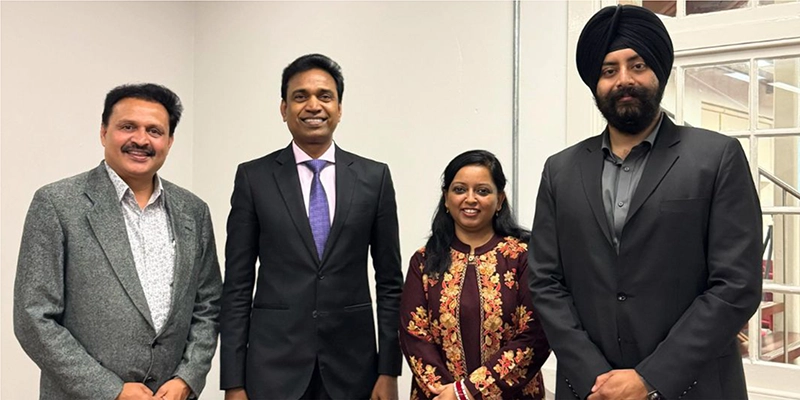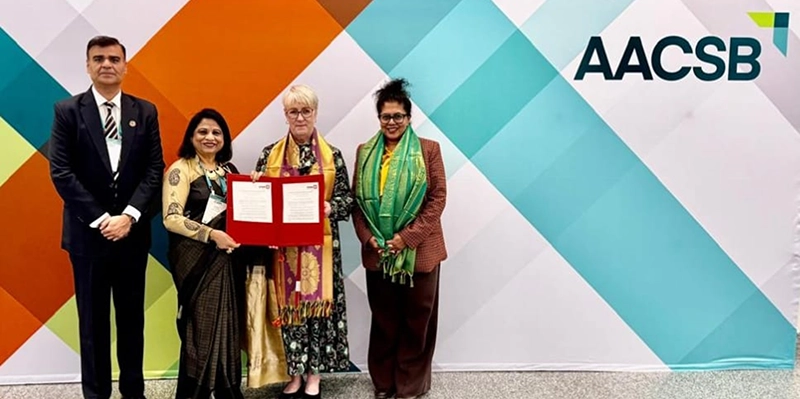Chitkara University - Best University in North India
Explore Your Potential with CHITKARA UNIVERSITY
Explore Your Potential with CHITKARA UNIVERSITY
Located just 30 km from Chandigarh, Chitkara University, ranked highly in prestigious national and global rankings, offers a world of learning to help you achieve your goals. Choose from industry-led programs, learn from outstanding faculty in state-of-the-art facilities, and access unlimited placement opportunities with over 2,000 campus recruiters. Join a vibrant community of students with ambitions as big as yours.
Awards and Recognitions












- Global Dual Degree Programs
-
MBA (Mktg |
Finance |
HR |
Logistics
Data Science & AI | Rural Management) -
MBA Healthcare |
Digital Health
Public Health (MPH) - MBA Sales & Mktg. (Retail | Pharma | BFSI)
-
B.E. CSE AI & Future Tech |
B.E. CSE AI & ML
B.E. CSE with Specialisations -
B.E. (Civil |
ECE |
Electrical
Mechanical | Mechatronics | Automobile) - B.Sc Nautical Science
- BCA | BCA with AI & ML | MCA
-
BBA-MBA (IPM) |
BBA (Hons.) Liberal Ed.
BBA | B.Com | B.Com ACCA | Economics - 5-Year Integrated B.A. LL.B. Law Program
-
UX/UI |
Communication Design
Animation | Fashion | Product Design - Architecture | Interior Design | Fine Arts
- Hotel Management | Culinary Arts | Pastry Arts
- Mass Comm (Digital | TV | Radio | Print)
- Pharmacy | Pharmacovigilance
-
Nursing |
Allied |
Nutrition
Physiotherapy | Optometry - Psychology & Counselling | 2-Year B.Ed
- Doctoral Programs
Discover Your Path to Success
-

-
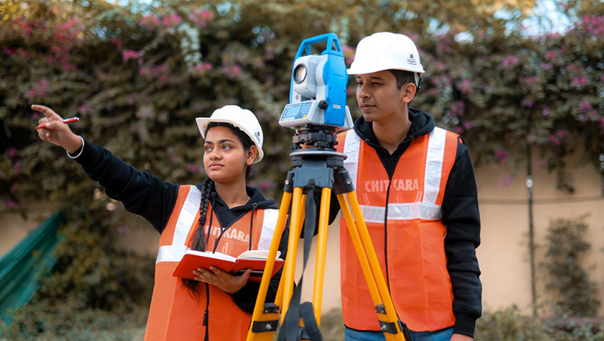
Civil | Electrical | ECE
Mechanical | Mechatronics | Auto -

Computer Applications
BCA | BCA with AI & ML | MCA -

MBA | Business
Economics | Accounting -

Hospitality | Culinary
Pastry Arts -

5-Year Integrated
B.A. LL.B. Law Program -

-
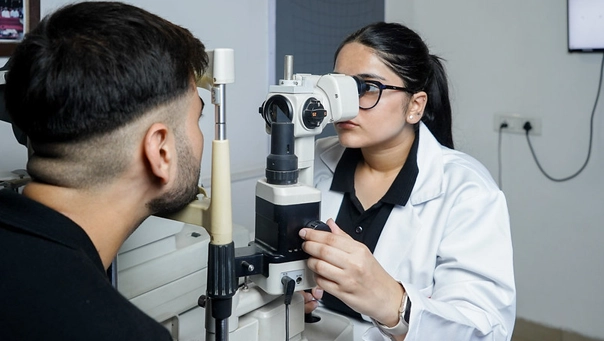
Nursing | Allied
Nutrition | Physio | Optom -

Pharmacy
Pharmacovigilance -

Journalism &
Mass Communication -

Merchant Navy
B.Sc Nautical Science -

-

-

Computer Applications
BCA with AI & ML
BCA | MCA -
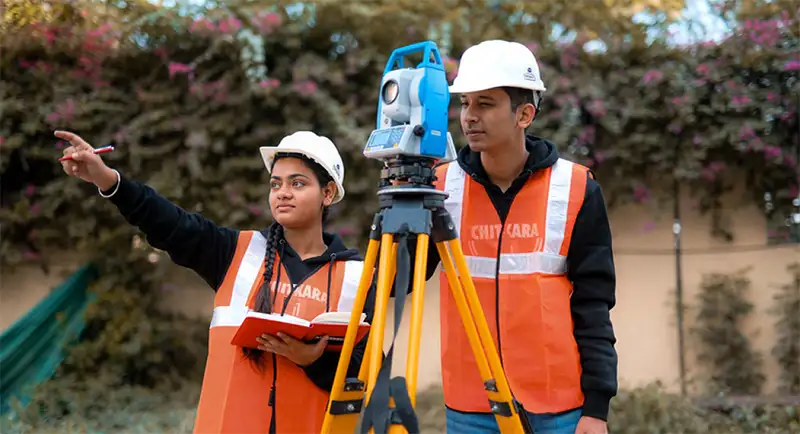
Civil | Electrical | ECE
Mechanical | Mechatronics | Automobile -

MBA | Business
Economics | Accounting -

Hospitality | Culinary
Pastry Arts -

-

5-Year Integrated
B.A. LL.B. Law Program -
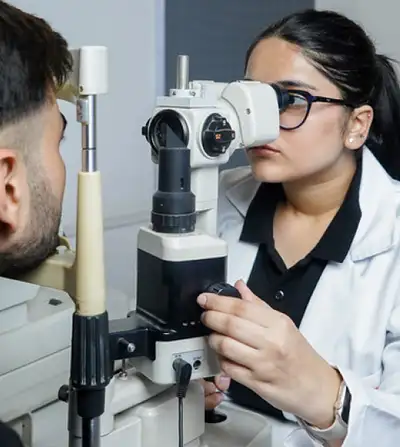
Nursing | Allied
Nutrition | Physio | Optom -

Pharmacy
Pharmacovigilance -

Journalism
& Mass Communication -

-

Merchant Navy
B.Sc Nautical Science
ADMISSIONS 2025
-
MBA (Marketing |
Finance |
HR |
Logistics
Data Science & AI | Rural Management) -
MBA Healthcare |
Digital Health
Public Health (MPH) - MBA Sales & Mktg. (Retail | Pharma | BFSI)
-
B.E. CSE AI & Future Tech |
B.E. CSE AI & ML
B.E. CSE with Specialisations -
B.E. | (Civil |
ECE |
Electrical
Mechanical | Mechatronics | Automobile) - B.Sc Nautical Science
- BCA | BCA with AI & ML | MCA
-
BBA-MBA (IPM) |
BBA (Hons.) in Liberal Ed.
BBA | B.Com | B.Com ACCA | Economics
- Global Dual Degree Programs
- 5-Year Integrated B.A. LL.B. Law Program
-
UX/UI |
Communication Design
Animation | Fashion | Product Design - Architecture | Interior Design | Fine Arts
- Hotel Management | Culinary Arts | Pastry Arts
- Mass Comm (Digital | TV | Radio | Print)
- Pharmacy | Pharmacovigilance
- Nursing | Allied | Nutrition | Physio | Optometry
- Psychology & Counselling | 2-Year B.Ed
- Doctoral Programs
Be a part of India’s Top Rated University
Global Dual Degree Programs
Chitkara University's Global Dual Degree Programs, in collaboration with top institutions in the US, Canada, and Australia, provide students with world-class academic mentorship and international exposure, enabling them to earn degrees from both Chitkara University and prestigious global universities.
CHITKARAU DEGREE OPENS DOORS. WIDE.
CHITKARAU DEGREE
OPENS DOORS. WIDE.
At Chitkara University, there is an intensive focus on getting each and every student industry ready. With more than 2000 recruiters visiting our campus every year, our graduates have the support, resources and facilities they need in a constantly changing world and job market.
News & Updates
Events & Conferences
 Instagram #chitkarau
Instagram #chitkarau
At Chitkara University, you will discover an Energy that runs through Everything and Everyone.
At Chitkara University,
you will discover an Energy that runs through Everything and Everyone.

Get Industry-Ready
We have an intense focus on making each and every graduate Industry-ready and in order to make sure that our students have access to latest technology, we have collaborated with major industries across sectors so our curriculum and innovation labs are in sync with latest industry trends.

Research from Day One
Research isn’t just an idea, it’s a way of life at CURIN, which supports diverse programs, projects and centres with over 100 Cr+ in annual research funding. We offer state-of-the-art facilities, collaborative work environments and unparalleled experience solving real-world problems.
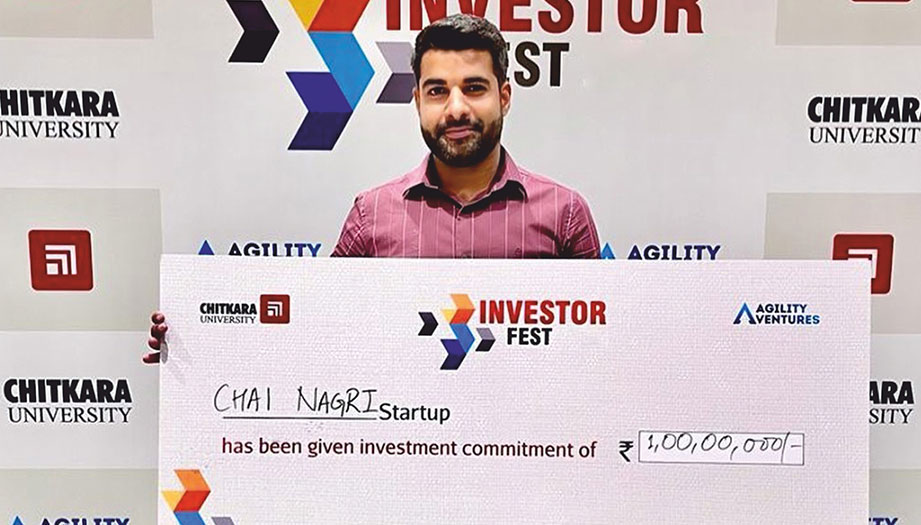
Start-up
Our world needs more entrepreneurs and Start-ups. That’s why Chitkara University’s Innovation Incubator connects students with resources from design and prototyping to marketing and funding which in turn, transforms Start-up ideas into actions that make an impact.
 In Our Labs and Our Classrooms
In Our Labs and Our Classrooms
Big Ideas are Born
In Our Labs and Our Classrooms, Big Ideas are Born

Award Winning Innovations and Ideas
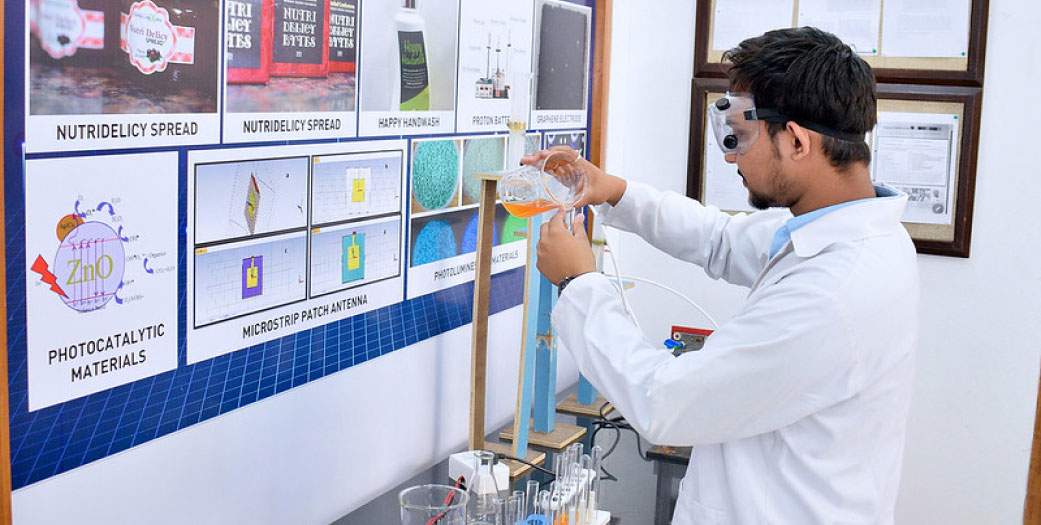
Breakthrough Research Grants and Patents
From Classroom to Career, We’re Here for You.
From Classroom to Career,
We’re Here for You.
Don’t do it alone. Whether you arrive on campus with a clear vision of your future or find a new interest along the way, Chitkara University offers a wealth of resources to help you with academic advising and charting a career path.

Go Above and Beyond
From your first day at Chitkara University, you’ll work alongside highly qualified faculty to reach your goals. A state-of-the-art curriculum grounded in experiential learning plus strong industry partnerships, means, our classes teach the skills employers want.

Worldwide and World Class
Our robust international exchange program with more than 300 global institutions gives you the opportunity to experience living on your own in a different country. The networks you build and experiences you encounter will give you a more global perspective.

Come to Play
At Chitkara University, it's play hard, cheer hard, or stay home. Don't be afraid to put down those books once in a while to hit the gym. Or track. Or court. Or pool. Or the cricket ground. Or whatever interests you. Join the league of champions!
Know more >> Instagram #chitkarau
Instagram #chitkarau
Events & Conferences
Star Alumni of the Week
Chitkara University played a pivotal role in shaping my journey towards the Indian Army, providing a strong foundation in discipline, leadership, and resilience. The university’s supportive environment, coupled with my involvement in NCC and consistent preparation, empowered me to stay focused on my goal. Today, as a commissioned officer, I draw upon those lessons daily. I am grateful for the transformative experience that set me on this path to serve the nation.


Capt Jashanpreet Singh
B.E. in Mechanical Engineering, 2020
Captain, Indian Army, India




